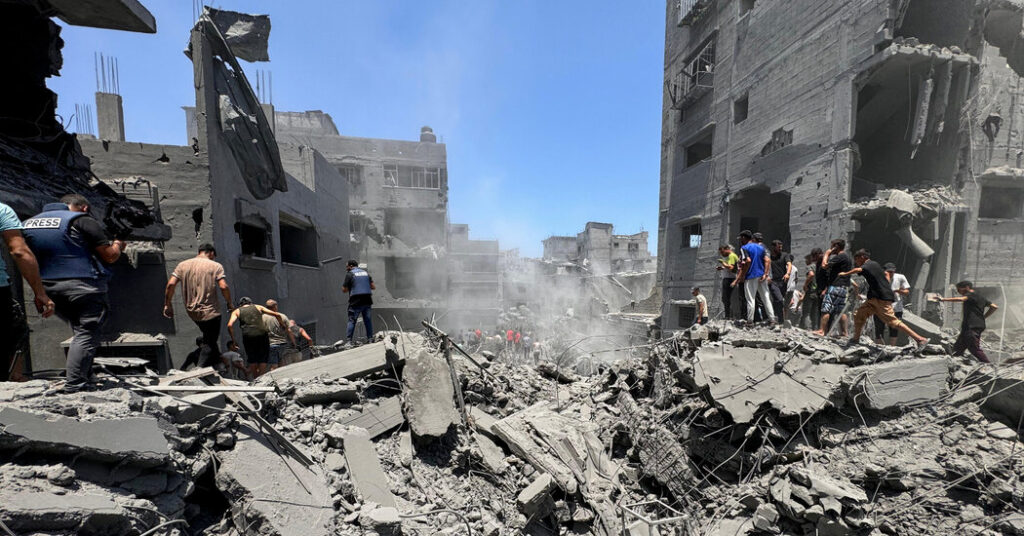Karim Masri was scheduled to begin final exams on Saturday morning, just weeks before graduation. Instead, he spent the morning filling water bags, freezing them into ice, and selling them to feed his family.
“I was supposed to be studying and preparing for my final exams,” Mr. Masri, 18, said.
According to the Palestinian Education Authority, Masri is one of nearly 39,000 students in Gaza who are unable to take final high school exams scheduled to begin Saturday in the Palestinian territories and Jordan and are unable to graduate.
The war has devastated Gaza’s education system, which has been in dire straits after several wars and escalations since 2008. Education, since the beginning of the war, schools have been closed for ten months and have been open for just over a month.
According to UNRWA, which operates many schools in the Gaza Strip, more than 76 percent of Gaza’s schools require reconstruction or major repairs before they can be used following Israel’s months-long offensive. Most of these schools are used as shelters for Gaza’s many displaced families, most of whom live in deplorable conditions.
Mr Masri said he dreamed of studying information technology at the Islamic University of Gaza or the University College of Applied Sciences – both schools destroyed by Israeli bombings. According to the United Nations, all 12 universities in Gaza have been severely damaged or destroyed as a result of the fighting.
Rather than pinning his hopes on returning to school and graduating, he said the war had changed his priorities and he now focused on working to continue supporting his family. Mr Masri said that while he was selling ice in the central Gaza town of Deir al-Balah, he often passed the school where “classrooms had been turned into shelters” and when he looked inside he was “filled with pain” “.
Islam al-Najjar, 18, who was due to take her first final exam on Saturday, said her school in Deir al Balah had also become a refuge Place.
“I can’t imagine going back and seeing my school, a place where we learn, turned into a shelter filled with displaced people living in miserable conditions,” she said.
“When we go back, we won’t see all the same faces,” she said, referring to her classmates, two teachers and her principal who was killed in the war.
Ms. Najar remains hopeful about the possibility of returning to school and graduating. She said that although “there are many obstacles to anything you want to achieve in Gaza,” she dreams of studying abroad and has her sights set on studying business at Harvard or Oxford.
“I’m very excited about my last year of school and starting a new chapter,” said Ms. Najar, the eldest daughter in the family, who had been planning her graduation celebrations before the war began. “But, of course, the war ended everything.”
“Why does the spring of our lives coincide with the decline of the country?” Ms. Najjar said. “Is it our fault that we dare to dream?”
Abu Bakr Bashir Reporting from London.

